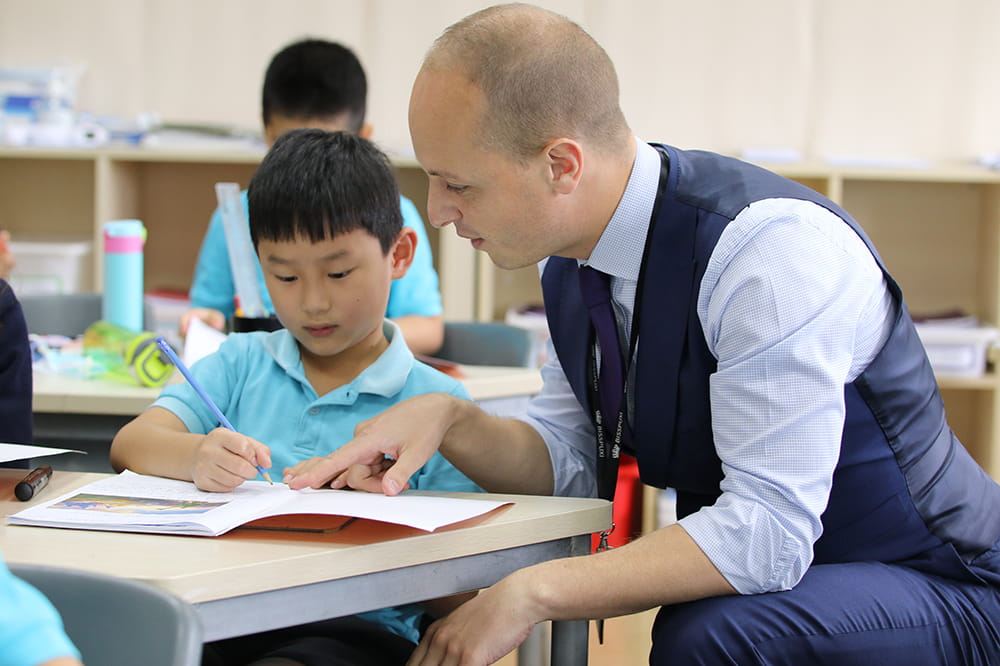Open Days
Register for our Open Day!


The British are well known for their attention to good manners and etiquette, and we at the British International School feel that they are an important part of a child’s education and that they have great value. We teach good manners through a programme called Behaviour and Social Graces (BSG), which forms part of a wider ranging curriculum area, Personal Health and Social Education (PHSE).
What do we mean by 'good manners'? When William of Wykeham, Bishop of Winchester and Chancellor of the Exchequer founded England’s oldest public school, Winchester College, he gave the school a simple motto: “Manners maketh man”. At the time, he was referring to the importance of a healthy a lifestyle – eating well, washing regularly and getting enough rest. This balance is of course still important today, and it is still promoted right the way through the school in our PHSE programme.
However, the meaning of Wykeham’s axiom has evolved over time. “Manners maketh man or so they say….” sang Sting in the 1980s hit “An Englishman in New York”. Those of us who, like Sting, grew up in the UK in the 1960s and 1970s, heard such phrases frequently from our parents. Generally, it was a matter of remembering to say please and thank you, and behaving well in social situations, particularly at the dinner table. In some ways little has changed, and it is these skills of politeness, respect and knowing how to behave when dealing with other people that are at the heart of our programme of BSG.
Why do we bother? Why is it important to know how to meet and greet people? Why are small acts of kindness and thoughtfulness so important? Edmund Burke, the 18th Century philosopher and politician, had this to say on the subject:
“Manners are of more importance than laws…Manners are what vex or sooth, corrupt or purify, exalt or debase, barbarise or refine us, by a constant , steady, uniform, insensible operation, like that of the air that we breathe in”
Burke is clearly of the view that the day to day interactions of regular citizens are of fundamental importance. He suggests that in many ways they are more important than the laws put in place by the governments of the world. He understood that if you are well mannered towards others and treat others as you would wish to be treated yourself, not only are you are more likely to be successful as an individual but, furthermore, a society will function more smoothly if its people conduct themselves in an atmosphere of mutual respect and courteous behaviour.
I believe he is correct because, whilst intelligence in its various forms, knowledge and skills are all important assets, it is also arguably just as important if not more so to interact successfully with other people. Experience shows that independent actions are essential in many cases but, often, so much more can be achieved through the cooperation and sharing of ideas that is engendered and strengthened by knowing how to behave towards other people. Small actions and words of appreciation and contrition should never be underestimated. Please, thank you, sorry and I forgive you are some of the most important words and phrases in the English language. Their frequent and sincere use is soothing and helps to establish and maintain cordial and mutually respectful relationships. In isolation, they may not be enough, but neglecting them may well be the source of unhappiness and mistrust. How often do people say that they do not feel appreciated or valued when all that is missing are simple words and acts of gratitude, and how much goodwill and positive feeling can be generated by a well-timed compliment?
Burke also writes that good manners “…..refine us”, polishing and giving confidence in a range of different situations. We believe that knowing how to behave in formal situations, meeting and greeting visitors or at formal meals is important. Once the formalities can be effortlessly observed, the focus can move on to the all important social interaction and communication. Through role play and modelling the importance of certain key features such as a firm handshake, eye contact and the right welcoming dialogue can be taught, and tips can be given about remembering names and other important elements such as giving and receiving compliments, the importance of thank you letters and emails.
We must, of course, be aware of other cultural norms and customs. Custom and practice vary enormously around the world from one country or one region to another. It is also important to have a starting point and, as the British School, we have perhaps not surprisingly decided to focus on British manners and etiquette. As the programme is delivered from year to year we continue to learn more about the customs and practices which help our pupils to deepen their understanding of other nations and cultures.
I believe we ignore this aspect of children’s education at our peril. We live in a world which is in many ways profoundly materialistic, and one in which these small but hugely important niceties are slowly but surely being eroded, forgotten and even ignored. If they are to survive, and if we are to continue to enjoy the benefits they bring in our school communities and beyond, a proactive whole school approach is necessary to guide and support our students so that, for them, behaviour and social graces are indeed, in the words of Burke, an “..... insensible operation, like that of the air that we breathe in.”